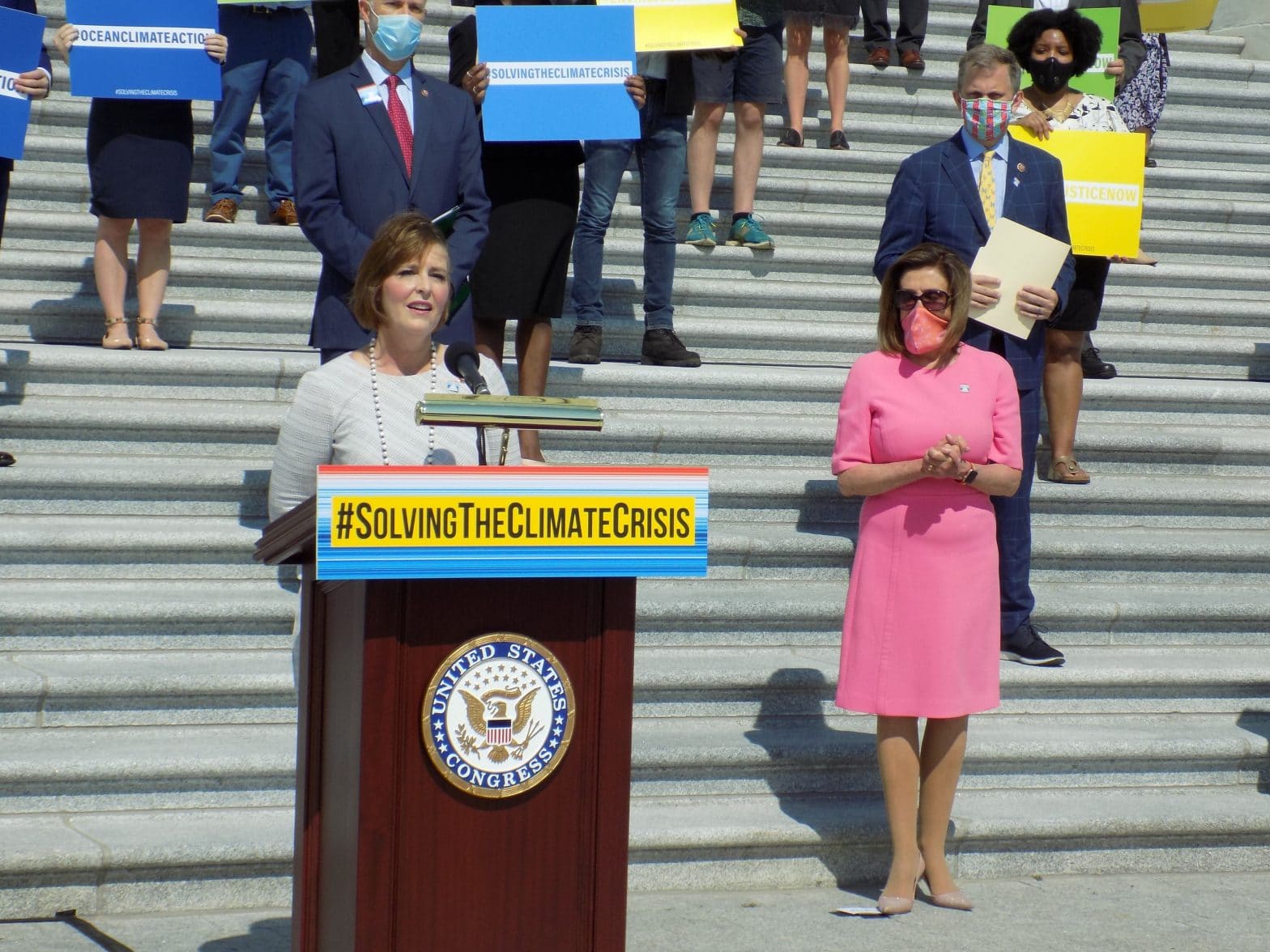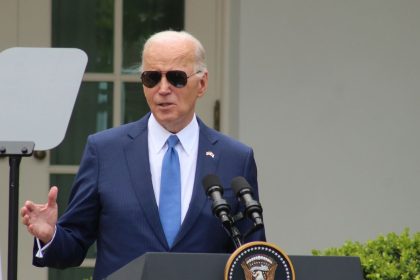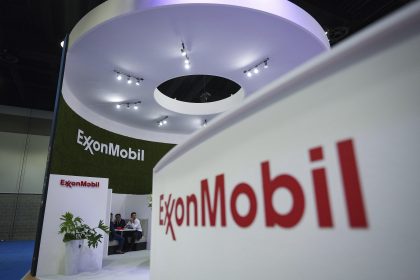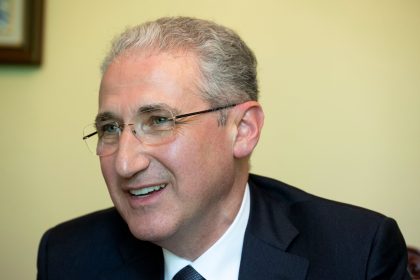Passing Infrastructure Bill, Democrats Go All-In on Climate

WASHINGTON — The $1.5 trillion infrastructure bill the House passed 233-188 Wednesday has little chance of advancing in the Republican-controlled Senate. But it fired a political warning shot: Democrats view climate change as a top issue for an already turbulent election year.
“This bill, as audacious as it is, will do one thing for sure: give Democratic candidates talking points for their campaigns this fall. It also sets the agenda for a big infrastructure push for a possible future Biden administration,” said Ross Baker, a Rutgers University political science professor.
In the middle of a pandemic that underscores the value of science and public health, Democrats are carving out territory on climate change and pushing it as an election issue for November and a threat that intersects with voters’ daily lives.
The bill, which passed the same week Democrats on the House Select Committee on the Climate Crisis released a 547-page report laying out a strategy for tackling climate change, would require states to commit to reducing greenhouse gases and other climate measures in order to receive federal dollars. It includes measures that would increase federal dollars for projects built with materials that reduce greenhouse gas emissions.
It would devote federal dollars to installing charging stations for electric and alternative fuel vehicles. And it would create a $250 million per year grant program to support local investments in reducing greenhouse gases.
Rep. Peter A. DeFazio, the pugnacious Oregon Democrat who chairs the House Transportation and Infrastructure Committee, made it clear from the start: Any transportation bill moving through his committee would have to substantially tackle greenhouse gas emissions.
He complained that while Republicans were willing to devote taxpayer dollars to resilient infrastructure, they were unwilling to devote resources to preventing climate change in the first place.
“What we have is a disagreement on principle,” he said on the House floor. “And you can’t compromise on principles.”
Republicans, miffed at being left out of a bill traditionally heralded as bipartisan, dismissed the climate change provisions in the bill. Ranking Republican Sam Graves, R-Mo., called it a “$1.5 trillion climate bill camouflaged as an infrastructure bill.”
“This irresponsible bill very well might pass the House, but that’s as far as it’s going to go,” he said, contending that “the Senate is never going to take up this unserious progressive wish list.”
The White House, in a statement vowing to veto the bill, said it was “full of wasteful ‘Green New Deal’ initiatives.”
Other Republicans insisted that they cared about the issue, but were not given a chance to weigh in.
“I am willing to have a climate negotiation with you and with anyone else,” said Rep. Garret Graves, R-La., the ranking Republican on the Select Committee on the Climate Crisis, during the bill’s committee markup, adding that “no one came to us with the text saying this is what we’d like to do.”
Before the coronavirus pandemic brought the economy to a near standstill, Democrats described climate change as the most urgent crisis of the time.
Polling released in June by the Pew Research Center showed about 65% of Americans say the federal government is doing too little to reduce the effects of climate change. Still, there is a party-line divide, with 89% of Democrats saying the government is doing too little compared to 35% of Republicans polled.
Still, Democrats have not been able to unite the entire caucus behind a specific policy solution and before today had only passed one major climate bill that would force the administration to meet the goals the U.S. agreed to in the Paris climate accord.
Liz Hamel, vice president and director of public opinion and survey research at the Kaiser Family Foundation, said climate change is a significantly more critical issue for Democrats than Republicans. Still, Hamel said it lags behind health care, the economy and the coronavirus — even among Democratic voters.
“There’s so much for people to be concerned about and worried about and outraged about right now that to break through to those who weren’t already extremely concerned about climate change, it’s difficult,” Hamel said.
In response to a KFF poll in June that asked voters to name their single biggest issue for the 2020 election, only 1% specifically listed climate change.
Democrats are increasingly discussing climate change as a threat that crosses into nearly every nook of human life, from transportation and agriculture, to racial justice and economic strength.
While dedicated climate activists and voters may make those connections, they make up a small “core” group, Hamel said.
Alec Tyson, associate director of research at Pew, said trust in medical scientists has grown during the COVID-19 pandemic, but that growth has come from Democrats.
Tyson said polarization between the parties over climate and energy issues has been rising since the end of the George W. Bush administration and through the Obama administration. Yet, President Donald Trump has presided over an era when partisanship regarding environmental and energy topics has never been higher.
“Partisan divides over issues of climate and energy are as wide as they’ve ever been,” Tyson said.
Though the infrastructure bill includes provisions on everything from school construction to expanded broadband access, the highway portion is considered the most urgent: The current law expires Sept. 30.
The Senate Environment and Public Works Committee last July overwhelmingly approved a five-year, $287 billion highway measure. On Wednesday, Senate EPW Chairman John Barrasso, R-Wyo., criticized the House bill as “a dead end” that “has no chance of becoming law.”
Senate Majority Leader Mitch McConnell, R-Ky., was also critical, calling the bill a “thousand-page cousin of the Green New Deal.”
“Naturally this nonsense is not going anywhere in the Senate,” McConnell said. “It will just join the list of absurd House proposals that were only drawn up to show fealty to the radical left.”
———
David Lerman contributed to this report.
———
©2020 CQ-Roll Call, Inc., All Rights Reserved
Distributed by Tribune Content Agency, LLC.
























